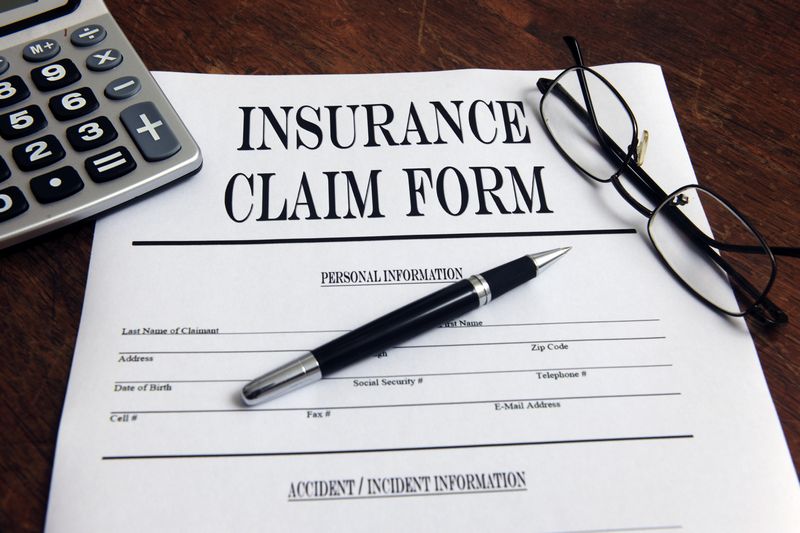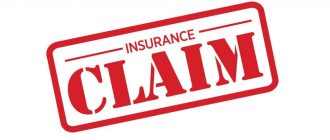
How to Prepare for a Meeting with Your Insurance Adjuster.
When it comes to dealing with insurance claims, one of the most important steps is meeting with your insurance adjuster. This meeting plays a crucial role in determining the outcome of your claim, so it’s crucial to be well-prepared. Knowing how to prepare for a meeting with your insurance adjuster can greatly increase your chances of a successful claim.
Tip 1: Gather all relevant documents. Before the meeting, make sure to gather all the necessary documents related to your insurance claim. This may include your insurance policy, photographs of the damage, receipts for repairs or medical bills, and any other evidence that supports your claim. Having these documents organized and readily available will show the adjuster that you have done your homework.
Tip 2: Understand your policy. Familiarize yourself with the terms and conditions of your insurance policy. This will help you better understand what is covered and what is not, so you can have a clear idea of what to expect from the adjuster. If you have any questions or concerns about your policy, make a list and bring it to the meeting.
Tip 3: Document the damage. Take the time to thoroughly document the damage or losses that have occurred. This can be done through photographs, videos, or written descriptions. The more detailed and comprehensive your documentation, the stronger your case will be. Provide this documentation to the adjuster during the meeting, making sure to explain the significance of each piece of evidence.
Tip 4: Prepare your questions. It’s important to be prepared with any questions or concerns you may have for the adjuster. Write down a list of questions beforehand so you don’t forget anything important. This will show the adjuster that you are well-informed and serious about your claim.
Tip 5: Stay organized. Keep all your insurance-related documents and correspondence organized in one place. This includes emails, letters, and notes from phone calls. This will help you keep track of important information and make it easier to reference during the meeting.
Tip 6: Be professional and cooperative. Remember to remain professional and cooperative during the meeting. Stay calm and polite, even if you disagree with the adjuster’s assessment. Being cooperative and willing to provide any additional information or documentation can go a long way towards resolving any issues or disputes.
By following these tips on how to prepare for a meeting with your insurance adjuster, you can ensure that you are well-prepared and ready to make a strong case for your claim. Remember to stay organized, be knowledgeable about your policy, and approach the meeting with a professional and cooperative attitude.
Understanding the Role of an Insurance Adjuster
When you have a meeting with your insurance adjuster, it’s important to understand their role in the claims process. An insurance adjuster is a professional who is trained to assess the damage to your property and determine how much your insurance company should pay for repairs or replacement.
During the meeting, the adjuster will review the details of your claim and evaluate the evidence you have provided, such as photographs, receipts, and invoices. They will also ask questions to gather additional information about the incident that led to the damage.
The adjuster’s goal is to determine the cause and extent of the damage, as well as the cost of repairs or replacement. They will carefully assess the damage and compare it to your insurance policy’s coverage to determine the amount of compensation you are eligible for.
To ensure a smooth and productive meeting with the insurance adjuster, there are several steps you can take to prepare. First, gather all relevant documentation, including your insurance policy, any photos or videos of the damage, estimates from contractors, and receipts for any expenses related to the incident.
Next, make a list of any questions or concerns you have about the claims process or your coverage. This will help you stay organized and ensure that you address all of your concerns during the meeting.
It’s also important to educate yourself about your insurance policy and coverage limits. Understanding the terms and conditions of your policy will help you have a more productive discussion with the adjuster and ensure you receive the compensation you are entitled to.
During the meeting, be prepared to provide a detailed account of the incident that caused the damage and answer any questions the adjuster may have. Be honest and provide as much information as possible to support your claim.
Finally, throughout the meeting, it is important to remain calm and professional. Remember that the adjuster is just doing their job and is there to assess the damage impartially. By maintaining a professional demeanor, you will help create a positive and productive atmosphere for the meeting.
| An insurance adjuster assesses the damage to your property and determines the amount of compensation you are eligible for. |
| Prepare for the meeting by gathering documentation, educating yourself about your policy, and making a list of questions or concerns. |
| During the meeting, provide a detailed account of the incident and be honest in your responses. |
| Remain calm and professional throughout the meeting to create a positive and productive atmosphere. |
Reviewing Your Insurance Policy
Before your meeting with the insurance adjuster, it is essential to review your insurance policy. This step is crucial to ensure that you are well-prepared to discuss the details of your coverage and make the most out of your meeting.
Start by familiarizing yourself with the key terms and conditions in your policy. Take note of the coverage limits, deductibles, and any exclusions that may apply. Understanding these details will help you have a clear idea of what to expect during the meeting and how your insurance policy will come into play.
Make sure to gather all necessary documents related to your insurance policy. This may include your policy contract, declarations page, and any endorsements or amendments. Having these documents on hand will allow you to reference specific sections and details during your discussion with the adjuster.
While reviewing your insurance policy, pay close attention to the specific type of coverage(s) you have. For example, if you are meeting with the adjuster for a property damage claim, review your property insurance policy to understand the coverage provided for such incidents.
Additionally, take note of any additional coverages you may have, such as loss of use, personal property, or liability coverage. These may be relevant to your claim and can have an impact on the compensation you are eligible to receive.
It is also important to review any obligations or responsibilities outlined in your policy. This may include reporting the claim within a certain timeframe or cooperating with the insurance company’s investigation. Understanding these requirements will help you fulfill your obligations and avoid any potential issues with your claim.
In conclusion, taking the time to review your insurance policy before your meeting with the adjuster is essential for proper preparation. Understanding the coverage, terms, and conditions will enable you to have a more productive discussion and ensure you are taking full advantage of your policy.
Gathering and Organizing All Relevant Documents
When preparing for a meeting with your insurance adjuster, it is important to gather and organize all relevant documents. This will help ensure that you have everything you need to support your claims and make the meeting more efficient.
Here are some tips to help you gather and organize your documents:
- Review your insurance policy: Before the meeting, carefully review your insurance policy to understand what is covered and what is not. This will help you determine which documents are relevant to your claim.
- Collect all correspondence: Gather any letters, emails, or other written communication you have received from your insurance company. This includes correspondence related to your claim, as well as any general information about your policy.
- Take photos or videos: If you have experienced property damage or other losses, document them with photos or videos. This visual evidence can help support your claim and provide a clear record of the damages.
- Gather receipts and invoices: If you have incurred any expenses related to your claim, such as repairs or temporary accommodations, gather all relevant receipts and invoices. These will help demonstrate the financial impact of the incident.
- Obtain police reports or accident reports: If your claim involves a police report or accident report, make sure to obtain copies of these documents. They can provide important details and evidence to support your claim.
- Create a timeline: To help organize your documents and provide a clear narrative of events, create a timeline of the incident and its aftermath. Include dates, times, and descriptions of key events and actions.
By gathering and organizing all relevant documents before your meeting with the insurance adjuster, you can provide a comprehensive and well-supported claim. This will help ensure that you are prepared to discuss your claim effectively and increase the chances of a successful outcome.
Documenting the Damage or Loss
When preparing for your meeting with the insurance adjuster, it’s crucial to have thorough documentation of the damage or loss you’re claiming for. This documentation will serve as essential evidence to support your insurance claim and ensure that you receive the proper compensation for your losses.
Firstly, take detailed photographs of the damage or loss from multiple angles. Make sure the images are clear and well-lit, as these photos will provide visual evidence of the extent of the damage.
Additionally, it’s advisable to make a written inventory of all the damaged or lost items. Include a description of each item, its value, and any relevant receipts or documentation. This detailed inventory will help you accurately calculate the value of your claim and ensure that nothing is overlooked during the process.
Furthermore, if there were any witnesses to the incident, be sure to gather their contact information. Their testimonies can provide valuable support for your claim, so it’s important to document their statements and have their contact details available if needed.
While documenting the damage or loss, it’s also crucial to take notes of any conversations or interactions you have had with the insurance company or adjuster. Keep a record of dates, times, and the content of these conversations. This information can be extremely helpful if any disputes or discrepancies arise during the claims process.
Finally, keep all your documentation organized and easily accessible. Create digital copies of your photographs and paperwork and store them securely in a cloud-based system or on a separate storage device. This way, you can easily provide copies to the insurance adjuster or any other relevant parties as needed.
By following these tips on documenting the damage or loss, you’ll be well-prepared for your meeting with the insurance adjuster and increase your chances of a successful insurance claim.
Calculating the Value of Your Claim
When preparing for a meeting with your insurance adjuster, it is important to understand how to calculate the value of your claim. This will help you have a clear idea of the amount you are entitled to receive.
First, gather all the relevant documentation related to your claim, such as medical bills, repair estimates, and receipts for any expenses incurred. These documents will serve as evidence of the losses you have suffered.
Next, assess the extent of the damages or injuries you have experienced. Be honest and thorough when documenting the details, as this will help support your claim.
Once you have gathered all the necessary information, you can start calculating the value of your claim. Start by adding up all the bills and expenses you have incurred as a result of the incident. This includes medical expenses, property damage, and any other costs directly related to your claim.
Consider any potential future expenses that may arise as a result of the incident. For example, if you have sustained a long-term injury, you may require ongoing medical treatment or therapy. Take these potential costs into account when calculating the value of your claim.
Another factor to consider is the effect the incident has had on your daily life and overall well-being. If you have experienced a decrease in quality of life or have been unable to work due to your injuries, this should also be factored into the value of your claim.
It is important to note that insurance adjusters may try to minimize the value of your claim. They may argue that certain expenses are not necessary or that the damages are not as significant as you claim. Be prepared to defend your calculations and provide evidence to support your claim.
In conclusion, preparing for a meeting with your insurance adjuster requires understanding how to calculate the value of your claim. By gathering all relevant documentation, assessing the damages or injuries, and considering all potential future expenses and the impact on your life, you can effectively determine the value of your claim and confidently negotiate with the adjuster.
Anticipating Questions and Preparing Answers
Preparing for a meeting with your insurance adjuster is crucial to ensure that you receive a fair settlement. Part of this preparation involves anticipating the questions that the adjuster may ask you and preparing thoughtful answers.
Here are some tips on how to anticipate questions and prepare answers:
1. Review your insurance policy:
Take the time to carefully review your insurance policy before the meeting. This will help you understand the extent of your coverage and the specific terms and conditions. By being familiar with your policy, you can confidently answer questions related to your coverage.
2. Gather documentation:
Organize all the relevant documentation related to your claim. This can include photographs, receipts, medical records, and any other evidence that supports your claim. By having this documentation ready, you can provide specific and detailed answers to questions that the adjuster may have.

3. Consider the adjuster’s perspective:
Put yourself in the shoes of the insurance adjuster and consider what information they would need to process and evaluate your claim. This will help you anticipate the questions that they may ask you during the meeting. By understanding their perspective, you can prepare concise and relevant answers.
4. Practice your answers:
Take the time to practice answering anticipated questions. This will help you feel more confident and articulate during the meeting. Practicing will also help you avoid rambling or providing unnecessary information. Remember to be concise and focus on providing relevant facts.
5. Be honest and provide accurate information:
When answering questions, it is important to be honest and provide accurate information. Insurance adjusters are experienced professionals who can often spot inconsistencies or inaccuracies in your answers. Providing truthful information will help build trust and credibility during the meeting.
6. Seek professional assistance if necessary:
If you feel overwhelmed or unsure about how to answer certain questions, consider seeking professional assistance. An attorney or a public adjuster can provide guidance and support during the meeting. They can also help ensure that you are not taken advantage of during the claims process.
By anticipating questions and preparing answers, you can approach your meeting with the insurance adjuster with confidence and increase your chances of receiving a fair settlement.
Researching Previous Similar Cases
When preparing for a meeting with your insurance adjuster, one important step is to research previous similar cases. This can provide you with valuable insights and information that can help you better understand the claims process and what to expect from your adjuster.
By reviewing previous cases that are similar to yours, you can gain a better understanding of how the insurance company handles claims like yours, what factors they consider when determining the value of a claim, and what types of documentation and evidence are typically needed to support your case.
There are several ways to research previous similar cases. You can start by reviewing online resources such as insurance company websites, forums, and online communities where individuals share their experiences with insurance claims. These resources can provide valuable information about the claims process and give you an idea of what to expect.
In addition to online resources, you can also reach out to friends, family, or colleagues who have gone through similar insurance claims. They may be able to provide you with insights based on their own experiences and offer advice on how to prepare for your meeting with the adjuster.
Another option is to consult with an attorney who specializes in insurance claims. They have knowledge and experience in handling similar cases and can provide expert guidance on how to navigate the claims process and negotiate with the insurance company.
By taking the time to research previous similar cases, you can be better prepared for your meeting with the insurance adjuster. This research can give you a clearer understanding of what to expect and can help you gather the necessary information and evidence to support your claim. Remember to stay organized and be prepared to present your case confidently and effectively.
Consulting with a Public Adjuster, if Necessary
If you’re unsure about how to prepare for a meeting with your insurance adjuster or if you feel overwhelmed by the process, it may be helpful to consult with a public adjuster. A public adjuster is a professional who is licensed by the state to assist policyholders in navigating the insurance claims process.
A public adjuster can provide valuable guidance and support throughout the entire claims process, from helping you understand your policy coverage to negotiating with the insurance company on your behalf. They have extensive knowledge of insurance policies and are skilled in calculating the value of damages. They can help ensure that you receive a fair settlement from your insurance company.
Consulting with a public adjuster can be especially beneficial if you have a complex insurance claim or if you’re dealing with a difficult insurance company. They can help level the playing field and advocate for your best interests.
When consulting with a public adjuster, it’s important to provide them with all the necessary documentation and information related to your claim. This includes photos of the damages, receipts for repairs or replacements, and any correspondence with your insurance company.
Before hiring a public adjuster, it’s a good idea to do some research and interview multiple candidates. Look for a licensed and experienced adjuster who specializes in your type of insurance claim. Ask for references and check their reputation with the state insurance department.
While consulting with a public adjuster can be an additional expense, their expertise and advocacy can often result in a higher insurance settlement. They can also help relieve some of the stress and frustration associated with the claims process.
Overall, consulting with a public adjuster can be a wise decision if you’re uncertain about how to navigate the insurance claims process or if you want to ensure you receive a fair settlement from your insurance company.
Ensuring a Complete and Clear Communication
When preparing for a meeting with your insurance adjuster, it’s crucial to establish a complete and clear communication. Here are some tips on how to ensure effective communication:
1. Prepare your documents:
Gather all relevant documents, such as your insurance policy, photos of the damages, medical records, and any receipts or estimates for repairs. Having these documents organized and readily available will help you provide accurate information during the meeting.
2. Understand your policy:
Take the time to review your insurance policy and understand the coverage you have. This will enable you to discuss your claim confidently and ask any questions you may have during the meeting.
3. Be honest and detailed:
It’s important to be honest and provide detailed information about the incident that led to your claim. This includes providing a clear and accurate timeline of events, describing the damages, and explaining any injuries sustained. Being truthful will help the adjuster assess your claim accurately.
4. Take notes:
During the meeting, take thorough notes of the adjuster’s explanations, discussions, and any instructions given. This will help you remember important details later and ensure a comprehensive understanding of the process.
5. Ask for clarification:
If you don’t understand something the adjuster says or need further clarification, don’t hesitate to ask. It’s better to have a complete understanding of the process than to make assumptions or misunderstand important information.
6. Keep a record of communication:
After the meeting, keep track of all communication with the adjuster, including emails, phone calls, and letters. This will help you stay organized and serve as evidence of your efforts to communicate effectively and resolve the claim.
By following these tips, you can ensure a complete and clear communication with your insurance adjuster during the meeting, which will increase the likelihood of a successful claims process.
Taking Detailed Notes during the Meeting
When meeting with your insurance adjuster, it’s important to come prepared with all the necessary information to ensure a successful outcome. One crucial step in this process is taking detailed notes throughout the meeting. This will not only help you remember important details but also provide a record of the conversation for future reference.
Here are some tips on how to effectively take notes during your meeting with the adjuster:
1. Bring a notebook or electronic device: Make sure you have a designated tool for taking notes before the meeting starts. This could be a pen and notebook or a laptop or tablet. Whichever you choose, ensure it’s easily accessible and ready to use.
2. Write down key points: As the adjuster discusses your case, jot down the key points they mention. Focus on important details such as dates, times, locations, and any specific instructions or recommendations they provide.
3. Take note of any questions or concerns you have: If you have any questions or concerns that arise during the meeting, write them down so you can address them later. This will help ensure that you don’t forget any important points or follow-up actions.
4. Use headings and subheadings: Organize your notes using headings and subheadings to make them easier to reference later. This will help you find specific information quickly without having to review the entire conversation.
5. Highlight important information: Use highlighting or underlining to emphasize important information in your notes. This will make it easier to locate crucial details when you need them later on.
6. Review and summarize at the end: Before wrapping up your meeting, take a few moments to review your notes and summarize the main points discussed. This will help solidify your understanding of the conversation and ensure that you haven’t missed any important details.
By taking detailed notes during your meeting with the insurance adjuster, you can better prepare yourself for the claims process. These notes will serve as a valuable resource as you navigate through the insurance process and help ensure that your interests are properly addressed.
Presenting Your Claim in a Logical and Persuasive Manner
When it comes to meeting with your insurance adjuster, it is vital to know how to present your claim in a logical and persuasive manner. This can greatly increase your chances of getting a fair settlement for your insurance claim. Here are six tips on how to prepare for your meeting with the adjuster:
1. Organize your documentation: Gather all the necessary documents related to your claim, such as photos, receipts, medical records, and any other evidence that supports your case. Organize them in a logical manner so that you can easily present your claim.
2. Be thorough in your explanation: When presenting your claim, be clear and concise in explaining the details of your loss or damage. Provide a timeline of events and include specific information, such as dates, locations, and the circumstances surrounding the incident. This will help the adjuster understand the full extent of your claim.
3. Use visual aids: Visual aids, such as diagrams or charts, can be helpful in illustrating the extent of your loss or damage. Use photographs or videos to provide a visual representation of the incident and its impact on your property or belongings.
4. Provide supporting evidence: Along with your documentation, provide any supporting evidence that strengthens your claim. This may include expert opinions, estimates, or reports from specialists in relevant fields. This additional evidence can bolster your case and make it more persuasive.
5. Stay composed and professional: During the meeting, it is important to remain calm and composed. Keep your emotions in check and present your claim in a professional manner. This will show the adjuster that you are serious and credible, increasing the likelihood of a fair settlement.
6. Anticipate and address counterarguments: Think ahead about possible counterarguments or objections the adjuster may have. Prepare your responses in advance and address them confidently during the meeting. This will demonstrate that you have thoroughly considered all aspects of your claim and are prepared to defend it.
By following these tips, you can present your claim to the insurance adjuster in a logical and persuasive manner. Remember to stay organized, provide thorough explanations, use visual aids and supporting evidence, remain composed and professional, and anticipate counterarguments. This will help you navigate the claims process and increase your chances of receiving a fair settlement.
undefined
How do I prepare for a meeting with my insurance adjuster?
To prepare for a meeting with your insurance adjuster, you should gather all the necessary documentation related to your claim, such as photos, receipts, and any other evidence of the damage or loss. It’s also important to review your insurance policy beforehand to understand your coverage and any limitations. Additionally, you may want to have a list of questions or concerns prepared to discuss with the adjuster during the meeting.
What kind of documentation should I bring to the meeting with my insurance adjuster?
When meeting with your insurance adjuster, it’s essential to bring all relevant documentation to support your claim. This may include photos of the damage, receipts for repairs or replacements, estimates from contractors, police reports (if applicable), and any other evidence that can help substantiate your claim. The more comprehensive and organized your documentation is, the better chances you have of a successful meeting with your insurance adjuster.
Should I review my insurance policy before meeting with the adjuster?
Yes, it is highly recommended to review your insurance policy before meeting with the adjuster. By familiarizing yourself with your policy, you will have a better understanding of your coverage and any limitations or exclusions that may apply to your claim. This will allow you to ask informed questions and have a productive discussion with the insurance adjuster during the meeting.
What should I do if I have concerns or questions during the meeting with my insurance adjuster?
If you have concerns or questions during the meeting with your insurance adjuster, it’s important to address them directly. Be sure to ask for clarification or further explanation if something is unclear. It’s essential to have a clear understanding of the adjuster’s evaluation of your claim and any proposed settlement. The adjuster is there to help you, so don’t hesitate to voice your concerns or seek clarification on any issues.
Is it important to make a list of questions or concerns to discuss with the insurance adjuster?
Yes, it’s important to make a list of questions or concerns to discuss with the insurance adjuster during the meeting. This will ensure that you cover all relevant topics and have a productive conversation. Your questions may include inquiries about the claim process, coverage details, deductibles, timelines, or any other specific concerns you may have. Having a prepared list will help you stay organized and make the most out of your meeting with the insurance adjuster.
What should I do before meeting with my insurance adjuster?
Before meeting with your insurance adjuster, it is important to gather all relevant documentation and information regarding your insurance claim. This includes policies, receipts, photos, and any other evidence related to the incident. You should also be prepared to discuss the details of the incident and provide any necessary documentation to support your claim.






